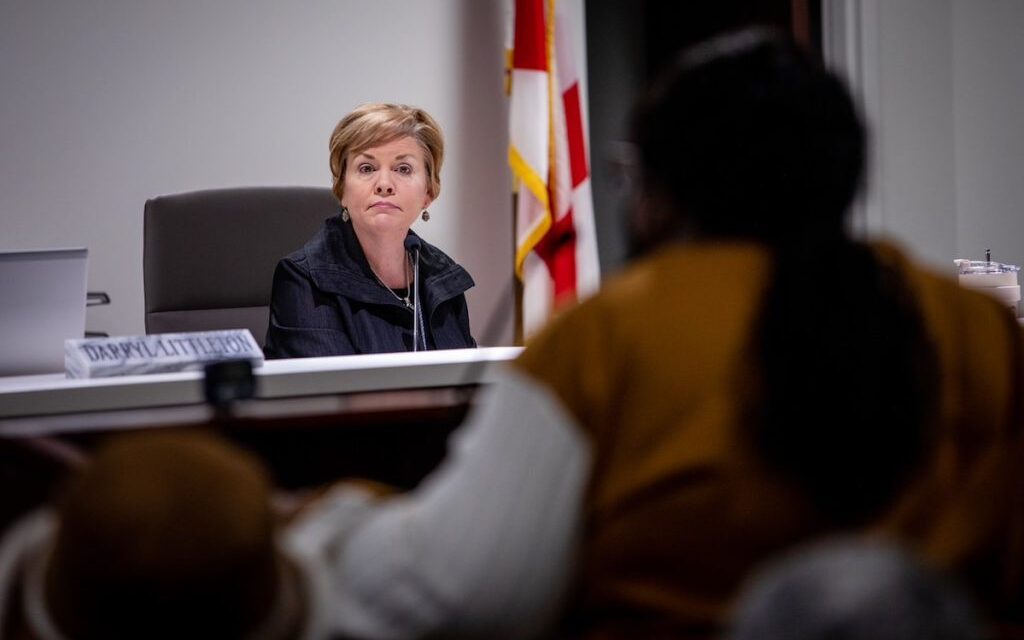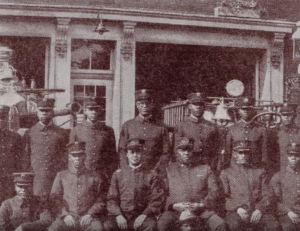This is an opinion column.
Leigh Gwathney cannot be having fun.
She is a public servant who is doing us a disservice.
And seemingly herself, as well.
She’s embarrassing us — embarrassing a state that long ago exhausted its quota of public servant embarrassments.
And she’s getting testy about it.
She’s spitting in the face of compassion, damning common sense, and unfairly ruling against too many men and women who’ve paid enough.
She’s mocking justice. Exhibiting the worst of our inhumanity.
And she cannot be having fun doing so. So why stay?
For the sake of us, those whose lives are in her hands – and herself – the obstinate chair of the Alabama Board of Pardon & Paroles should step down. Now.
At minimum, Gov. Kay Ivey should not re-appoint Gwathney to a second six-year term when her current one expires next year.
Just let her go.
Alas, the governor may not correct this egregious miscarriage since she does not likely see it as such. Because she caused it.
Ivey appointed Gwathney, a product of our heartless state attorney general’s office, as chair in October of 2019, not long after the state legislature’s knee-jerk passage of a new law ostensibly to “reform” the three-member board by yanking the keys from a nominating commission and handing them to the Lieutenant Governor, Speaker of the House and Senate President Pro Tempore.
Reform, however, quickly came to mean: Shove paroles into reverse—a gross overreaction to the heinous murder of three people by Jimmy O’Neal Spencer, who had been paroled the previous year. Almost instantly, the board ground to a toothless halt — as we now know, thanks to the groundbreaking reporting of my AL.com colleagues Ivana Hrynkiw and John Archibald in Denied: Alabama’s Broken Parole System.
Just two years prior, the board, which requires an affirmative vote from two of the three members for parole to be granted, released more than half (54%) of the applicants whose cases came before it. Some were well into their sunset years and were deemed by the board’s own guidelines to be a threat to no one and merited release. Some were already participating in a work release program with jobs outside prison walls, safely circulating among us.
Yet with Gwathney’s arrival, the grant rate plummeted to 31% in the first year. Then 20% in 2020, 15% in 2021, 10% in 2022.
And a feckless 8% in 2023—just 297 paroles granted in 3,583 hearings. A thumb in the eye of the board’s own recommendation that about 8 in 10 applicants should qualify for release.
Gwathney overwhelmingly votes no at a much higher rate than fellow board members Darryl Littleton and Gabrelle Simmons, and often favors putting off another hearing for five years, the maximum allowed by the law.
Thus, we call it The Gwathney Effect.
Yet creating a non-parole parole board was also Ivey’s Intent. Upon signing the bill, she said, “The paramount duty of this board is to protect and instill confidence in public safety.”
Translation: Close the gates. With Gwathney.
No matter that the state would be sued in 2020 by the U.S. Department of Justice, which found our prisons to be unconstitutionally horrific. To be overcrowded, understaffed, and so dangerous our incarcerated men and women are all living on a death row of sorts.
The governor and state lawmakers will spend more than $1 billion for a new 4,000-bed prison in Elmore County, almost the amount first allotted in 2021 to build two prisons. The first prison is scheduled to be ready in 2026, while plans for the second one in south Alabama haven’t been finalized. But the plan will not address overcrowding as other, older hellholes will be shut down and no additional beds will be added.
The sardine-can system remains 69% over capacity. And the whole system is headed into a legal showdown with the Justice Department.
Last week, some state lawmakers feigned amnesia about the legislature’s own role in this mess. At a meeting of the Joint Prison Oversight Committee in Montgomery on Wednesday, citizens shared nightmares of non-sensical rejections of loved ones by the parole board.
One anguished mother said, “… once they put you in there, they throw the key away. You’re stuck for life.”
Yet members shrugged, deflected, and pointed to Ivey rather than acknowledge the unnecessary law it passed that ceded its powers to the governor.
Rep. Jim Hill, R-St. Clair County, said, “the day-to-day operations of the parole board are not supervised, they are not directed by the legislative branch of government.”
He added that the board “ought to be here.” But fellow committee member Sen. Clyde Chambliss, R-Autauga County, gave them a no-show pass by apologizing for giving the board only 30 days’ notice.
“I will get them an invitation earlier next time,” he said.
Gwathney appears to be unraveling beneath the harsh light of scrutiny. At a recent hearing over the parole of Willie Conner, who has served over 12 years in prison after stealing a roofing nail gun from a Lowe’s in Foley, she ignited a grating nails-on-blackboard legal minutiae back-and-forth with former Alabama Supreme Court Chief Justice Roy Moore, who’s long backed Conner’s release, as if he was a first-year law student.
“People want justice,” Moore later said to my colleague Ivana Hrynkiw. “They want bad people to stay in, they want people that are worthy of parole to get out. That’s the system. That’s what it’s supposed to be. But that’s not what it’s been. What it’s been is a representative of the attorney general’s office controlling the parole board in my opinion.”











